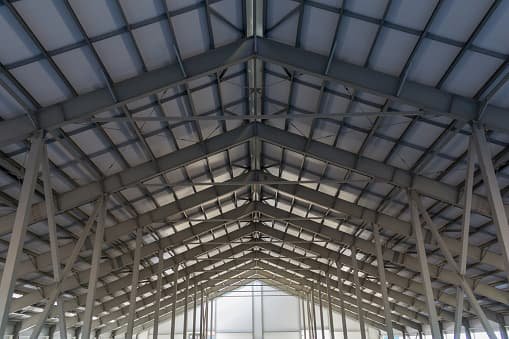Do you own a metal carport, or are you considering buying one? Whether it is a vertical roof or a regular frame roof steel carport, it doesn’t matter. Insulation is a must. So, which insulation should you pick, how does it work & what are the available options with alternatives? That’s what we will discuss here.
So, why would you need an insulator for your metal carport?
An insulator gives protection against condensation. Condensation is a situation in which warm air comes in contact with cool air, and tiny water drops are formed. These water drops, over time, coagulate and result in rusting. So, long story short, insulator prevents corrosion.
Which parts of your steel carport can be insulated?
Since carports are usually open structures, you must be wondering,” What is the use of insulating a steel carport? Which parts can be protected?” You see…
Even though carports are almost open, they still have some covering to protect your vehicle, i.e., roof and side panels on two sides. These are made up of steel or metal. Hence, they need insulation to prolong the life of the entire carport. Especially a metal roof needs to be insulated because it has to tolerate the direct impact of rain, sun, snow, etc.
Note: Your metal carports must be open from at least two sides to be qualified as a carport. Otherwise, it would be considered a garage.
Some of the best options for metal carport insulation:
1. Reflective
- It is also known as foil insulation.
- This material’s surface has a reflecting aluminum foil or polyester, cardboard, plastic film, etc.
- It can reflect heat up to 95%.
- It is most effective in reducing downward heat flow and, hence, suitable for metal roofs.
2. Fiberglass
- Glass is blown into thin fibrous, which is used as an insulator.
- It can withstand high temperatures.
- It is an affordable & effective option.
- You can’t DIY it. You would need to call professionals to install it for you.
- Also, protective wear must be worn when installing fiberglass.
3. Spray Foam
- It is easy to install.
- It is of two types – open and closed cells.
- You can use open cells to fill large areas and around any blockage.
- Closed cells can be used in small regions for extra durability & around uneven areas.
- Closed cells are rigid and can be used directly on the pre-prepared interior of a metal panel.
- These are more expensive than fiberglass.
4. Loose-fill
- It is made of loose fibers or pellets.
- It is a costly insulation.
- It can’t get into the corners.
5. Foil Bubble
- Bubble wrap is made of a layer of foil with encapsulated air bubbles pressed in between layers.
- It is a type of radiant barrier and is costly yet effective.
- It is similar to the one that you receive with your online shopping packaging.
[https://atticareusa.com/wp-content/uploads/2021/01/Red-Orange-Photo-Comparison-Chart.jpg]
Should you care about the R-value of metal carport insulation? If yes, how much insulation does a steel carport need?
You don’t necessarily need to buy expensive insulators with high R-value. A high R-value means more thermal resistivity and high resistance to heat flow. To know what R-value range is best for your location and climate, you can contact a local insulator installer who will brief you on the details.
Conversely, by studying your geographic location, you can verify what R-value insulator is sufficient for you. Department of Energy has a chart with all zones and requires R-value, so check it out. For example, you can choose R-13 to R-23 for exterior walls, R-30 to R-49 for ceilings, etc.
How much steel carport insulation will cost?
If you select affordable options like fiberglass or polypropylene insulators, the cost breaks down as follows:
- For R-13 single-layer insulation, you will have to spend around $0.50 per sq. ft.
- For r-30, a double-layer insulator will cost you almost $1.50 per sq. ft.
Alternatively, you can directly install metal sandwich panels (IMP). It comes with an in-build insulation. It helps avoid extra work. Of course, it comes at a price. You can expect it to be somewhere around $20 to $30 per sq. ft. However, installing IMPs can reduce labor costs by up to 55% when compared to a traditional structure [source: website].
Factors you must consider before buying an insulator:
- What would you be using your carport for? Is it just for parking, or do you want it to be multi-functional?
- What kind of climate do you live in? Is it moderate throughout the year, rainy or snowy? This will help decide the R-value as well.
- Is aesthetics important to you? If yes, would you like to go with a minimal look or stand out carport on your property?
- And finally, your budget is also essential. Pre-decide how much you would like to spend on your carport, and then you can add features like trim, gutter, color, etc.
- Make sure to use a high-quality insulator that complements your metal building to ensure its longevity.
In general, it can be said that:
Metal carport will not just protect your vehicle & provide you with extra outdoor area for miscellaneous activities but also add value to your property. People will love to buy a home with a car parking area.
In the future, you can install solar panels on the roof of your steel carport & save on energy bills. The government also offers an insulation tax credit. So, take advantage of it.

